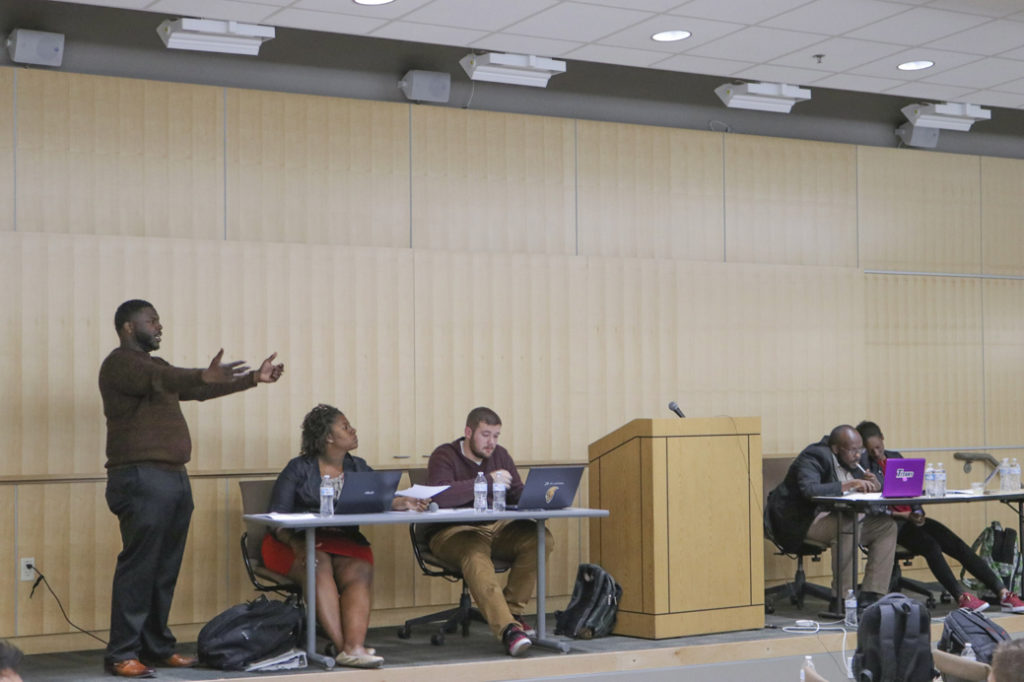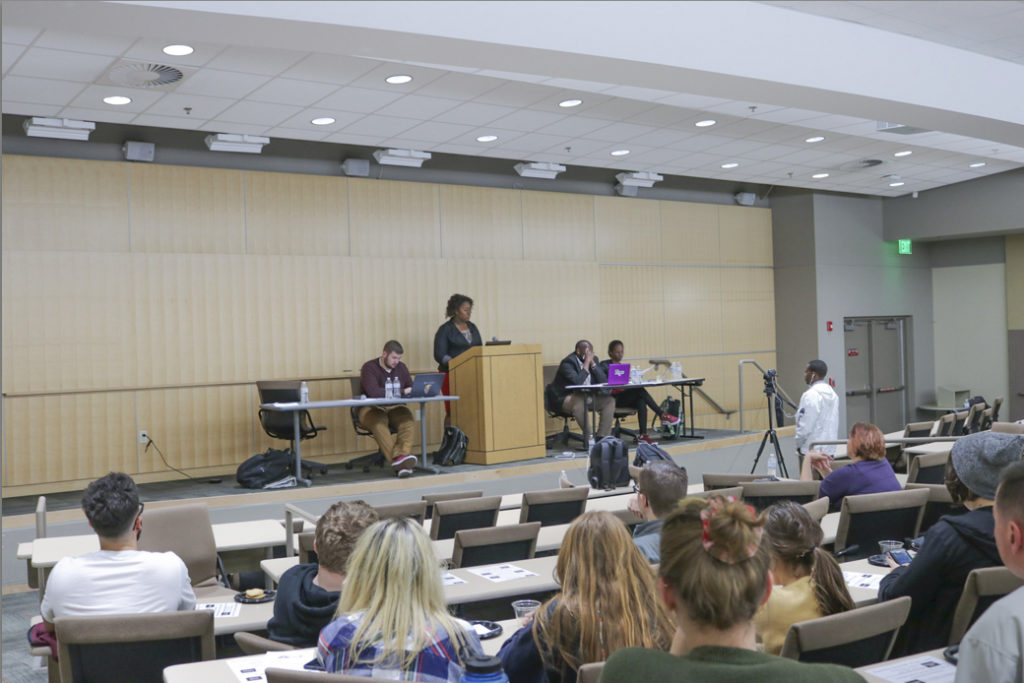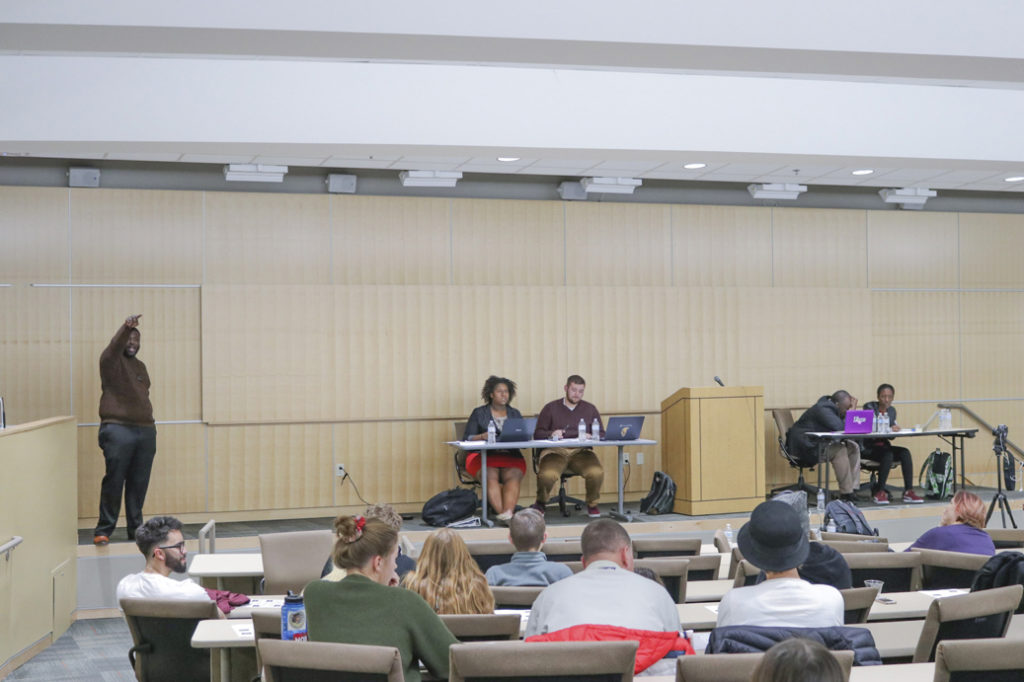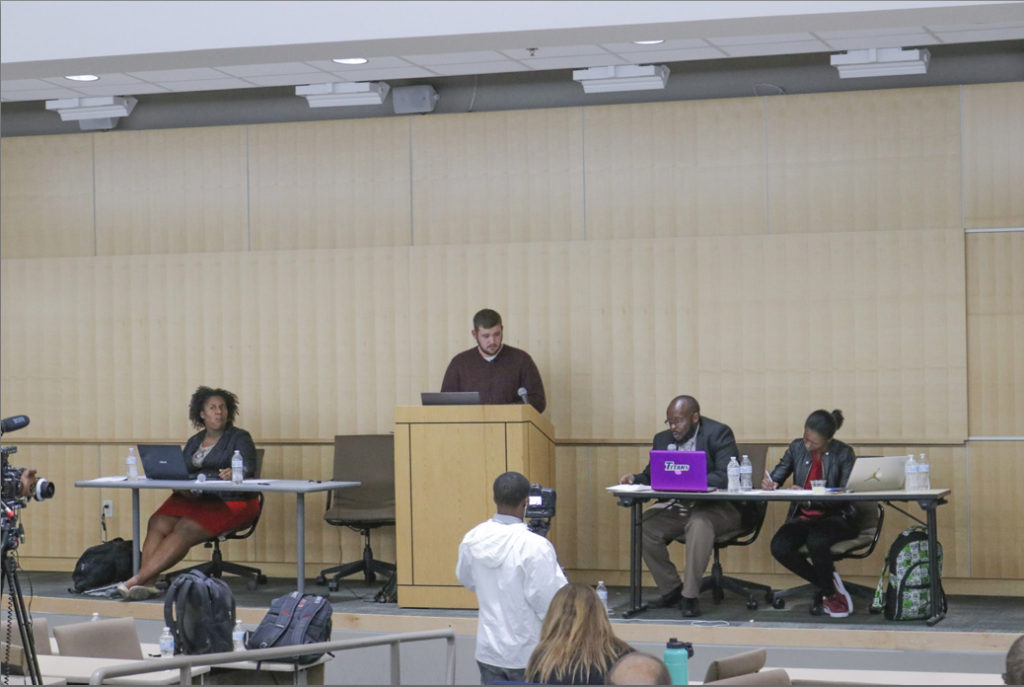
The Weber State University Debate Team was honored to host the IDebate Rwandan Debate team as a stop on their two-month tour of the United States. WSU debate was able to host a debate and ask the Rwandan team to do a cultural showcase the night after.
The debate questioned posed by the IDebate team was “Should the United States military intervene in Genocide?” Rwanda decided to be affirmative, making WSU negative.
To put the Rwandan Genocide into perspective, Jean-Michel Habineza, a debater for Rwanda and the co-founder and director of IDebate Rwanda, said that there were around one million deaths in Rwanda in a stretch of 100 days.
Interim Forensics Director and WSU Debate coach Ryan Wash noted the importance of being open and learning from the Rwandan Debate team through deliberation about a topic they know all too well.
“The art of debating is a way to compromise our differences and issues with one another without being violent, so that is why we are doing this today,” Wash said.
The Rwandan IDebate Team previously created a YouTube video about why debate is so important to them, and the overall message was clear: they are the generation after the genocide, and they demand their voices be heard.

Wash acted as mediator and a makeshift translator, regularly summarizing the arguments between the two sides to the benefit of the audience.
“The goal of all debate teams is to lead our community through tough conversations,” Wash said. “This is what debate is, this is what public deliberation is, answering the question of, ‘how we can resolve our issues through words instead of violence?’”
The meat of the Rwandan argument was that the U.S. should feel an obligation to help international genocide cases because life is the ultimate sacrifice, making it also the number one priority to save in any case possible. Loane Rwiranzira, at a mere 17 years old, aided her partner Habineza in arguing a three-fold solution.

They argued that the US should be responsible for a 20,000 troop unit to be on-hand and ready to be deployed in case of a genocide threat. They also maintained that the U.S. be responsible for setting up refugee camps and then providing medical and humanitarian aide to the victims.
Wash interjected thoughts in between each round, saying that this debate was so important because too often we really on the internet to learn. He continued that without these discussions about vital topics with people that have lived through it, we will never truly know the heart of the issue.
Representing WSU debate were Terri Hughes and Zack Baker. Hughes opened the negative side of the debate with a poem drawing attention to America’s own mass genocide that has been ongoing for countless years: the violence against black people.

In the end, it seemed the negative side had one main question for the affirmative: who gets to decide what classifies a genocide?
Baker pushed the affirmative to back down on their idea of a national counsel determining classification.
“In the status quo, Donald Trump decides whether we mobilize resources or not on genocide,” Baker said.
WSU argued that the affirmative was taking the U.S. as responsible to act on international genocide because we have the largest and most powerful influence and presence worldwide. So, the negative took that to mean we would be in charge of it all.

The affirmative fought back with the argument that the “how” matters much less than the act itself.
“This debate is not a question of action or inaction,” Baker said.
WSU argued that there is no check for the United States military. There would be rash decision and carpet bombing, without one thought of the collateral, because whether we live here or not, we can admit that we are not without flaws.
The affirmative argued back with a humanistic appeal.
“People need to stay alive,” Rwiranzira said.
They went on to note that the only harm the United States has done is to not act in the past, so, it does comes down to action or inaction.
“Is there a justifiable reason to not save lives?” Wash said.
He posed this question to the audience or the debaters, but the audience had clearly not been swayed to either side because he was met with silence.



















